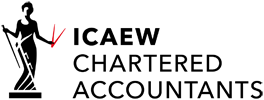How to treat recharges and disbursements

Clients often incur expenses when providing their services to customers, and some may also purchase goods and services on behalf of their clients. These expenses and disbursements are treated differently for tax and VAT purposes and should be invoiced accordingly.
Expenses (recharges)
These are a cost a business incurs in the process of providing services.
These can include external consultant fees, postage, travel and subsistence which are costs included in the services a client supplies to their customer. This is because the expense is incurred as part of the service they deliver to the client.
When these are invoiced, the client should reclaim the VAT from the expense, add it to their invoice alongside fees for services and then charge VAT on the total. It is useful to have an expense analysis for these direct cost recharges, and an income analysis for direct income recharges. The two should net off.
Disbursements
These arise when a client, acting as an agent, makes a purchase on behalf of their customer from a third party .
These can include the Companies House confirmation statement fee Moore Accountancy may pay on your behalf, a solicitor paying stamp duty on a client’s behalf or a website designer buying a web domain hosting package from a third-party provider as part of a project.
The customer is benefiting from the purchase and is responsible for payment, and the costs are distinct from the client’s other services.
Before you treat a payment as a disbursement for VAT purposes, you’ll need to make sure all the following apply:
- you paid the supplier on your customer’s behalf and acted as the agent of your customer
- your customer received, used or had the benefit of the goods or services you paid for on their behalf
- it was your customer’s responsibility to pay for the goods or services, not yours
- you had permission from your customer to make the payment
- your customer knew that the goods or services were from another supplier, not from you
- you show the costs separately on your invoice
- you pass on the exact amount of each cost to your customer when you invoice them (i.e. make no profit)
- the goods and services you paid for are additional to whatever you’re billing your customer for doing yourself
Detailed example
A client charges £500 per day training for 3 days, stays 2 nights in a hotel (VAT registered) for £100 per night, took a train to the client site for £150 (0% rated) and purchased domain hosting for £500 (VAT registered).
The sales invoice would be as follows:
Fees: three days at £500 per day 1,500.00
Hotel: two nights at £100 per night, less VAT at 20% 166.67
Train: £150 (zero rated) 150.00
Net Invoice 1,816.67
VAT at 20% 363.33
Disbursement: Domain hosting 500.00
Invoice total 2,680.00
Final points
Note that VAT is not reclaimed for this domain hosting disbursement, nor is it added to the customer’s invoice. The VAT on the hotel nights of £33.33 are claimable by our client though.
It is important that the invoice clearly differentiates the disbursement so that it does not become part of the calculations for the VAT return
Finally, if you have an agreement with your customer where they wish to pay VAT on the total bill regardless, then that is also fine. (In the above example, you would then charge £200 for hotel and charge 20% VAT on top)
If you have any questions about this treatment the please get in touch with one of the Moore Accountancy team who will be able to go through your scenario in more depth.
News
On 06/03/24 Chancellor Jeremy Hunt presented his Spring Budget to […]
Companies House have stated that they will be increasing their […]
On 22/11/23 Chancellor Jeremy Hunt presented his Autumn Statement to […]
The trend towards digital paperless office solutions is rapidly increasing, […]
The VAT Flat Rate scheme (FRS) was introduced in 2002 […]









